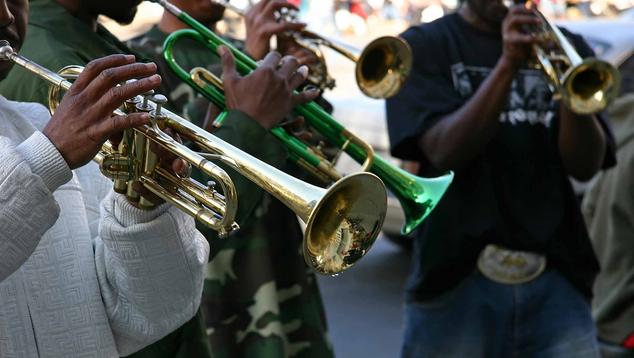WASHINGTON, D.C. -- New data from the Gallup Center on Black Voices reveal that majorities of Americans, across racial groups, report that they are familiar with Black influences on American culture and think Black Americans are given credit and celebrated for their contributions. Yet less than half of Black adults in the U.S. think that Black Americans are given credit or celebrated for their contributions to American culture.
These findings, from a poll conducted Oct. 25-Nov. 9 using the online, probability-based Gallup Panel, relate to the “African Americans and the Arts,” theme of Black History Month 2024, which celebrates Black influence and innovation in art, music, literature and more.
Black Adults Are Least Likely to Say Black Contributions Are Celebrated
More than two in three Americans report being “very” (20%) or “somewhat” (49%) familiar with Black contributions to U.S. culture, with Black Americans themselves (80%, including 51% very familiar) the most likely of racial and ethnic groups to report this level of familiarity. The meaning of “culture” was left to the interpretation of respondents.
While majorities of Americans say these contributions are celebrated “a lot” or “some” (62%) and that Black Americans are given “a lot” of or “some” credit for the contributions (55%), Black Americans are least likely to perceive these contributions as being credited or celebrated.
Where Have Americans Learned About Black Influences on Culture?
Nearly half of Americans say they learned “a lot” (12%) or “some” (34%) about Black contributions to American culture in K-12 school, with similar figures recorded across racial groups.
School curricula across the U.S. vary greatly and often do not include cultural studies, such as art or music. Younger Americans aged 18 to 39 (51%) are slightly more likely than Americans aged 40 and older (43%) to say they learned about Black cultural influences in grade school.
Americans are much more likely to say they have learned about Black cultural contributions elsewhere, with a majority (64%) saying they learned through family or friends, media, or personal experiences. Across racial and ethnic groups, majorities report having learned about Black contributions in this way.
Bottom Line
This Black History Month, some American students may learn about Black contributions to U.S. culture in school, but Americans are more likely to say they have learned about these influences through their personal experiences -- from conversations with others and the media they consume, for example.
“Culture,” which was not defined for respondents in Gallup’s question wording, can be interpreted in many ways -- in terms of food, language, the arts and more. Regardless of how they perceive the meaning of culture, most Americans report having familiarity with Black influences on it -- and view these influences as distinctly Black-originated and ones that are celebrated.
To stay up to date with the latest Gallup News insights and updates, follow us on X.
Learn more about how the Gallup Panel works.
Subscribe to receive email updates on Gallup's latest insights and historical findings on the experiences of Black Americans. Access the latest from the Gallup Center on Black Voices.




